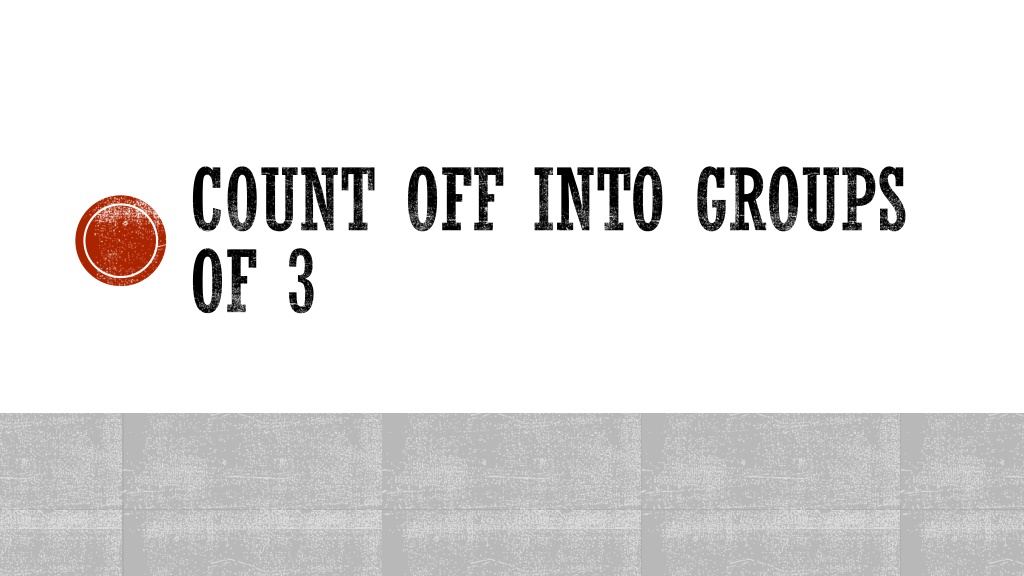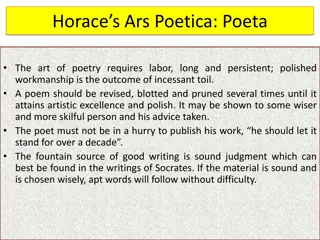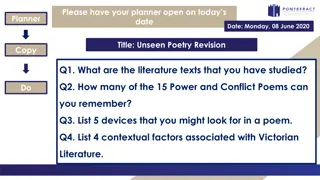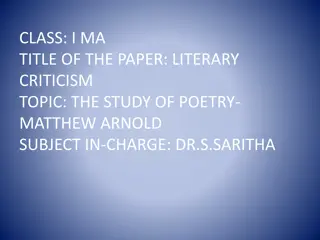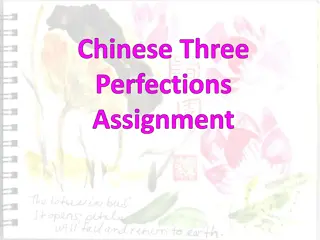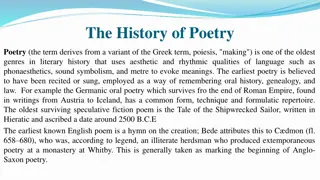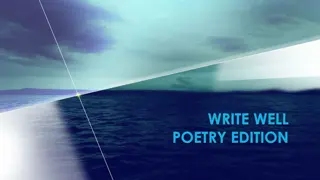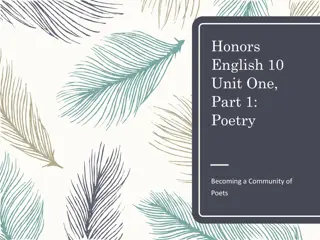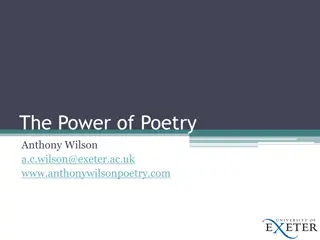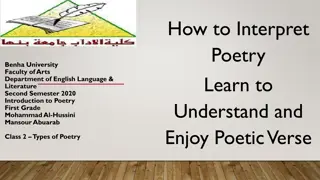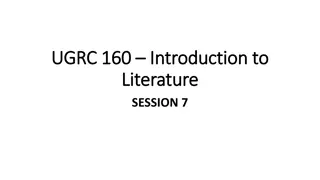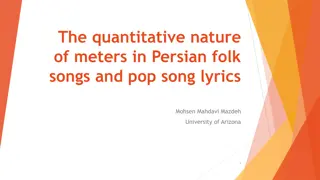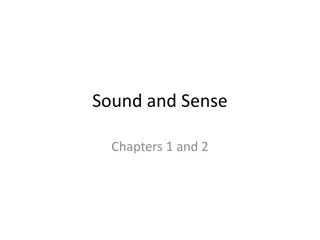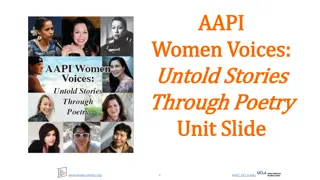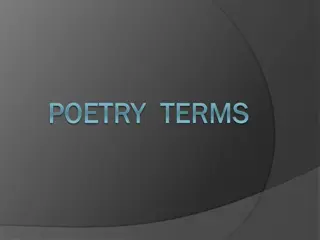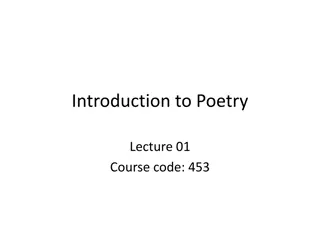Exploring Poetry: Definition, Analysis, and Appreciation
Delve into the world of poetry through discussions on what poems and poetry are, exploring dictionary definitions, famous quotes, and the transformative power of reading and analyzing poetry. Engage in group activities, examine the works of poets like Mina Loy and Mark Yakich, and discover the unique language and emotional depth of poetry.
Download Presentation

Please find below an Image/Link to download the presentation.
The content on the website is provided AS IS for your information and personal use only. It may not be sold, licensed, or shared on other websites without obtaining consent from the author. Download presentation by click this link. If you encounter any issues during the download, it is possible that the publisher has removed the file from their server.
E N D
Presentation Transcript
WARM-UP: WHAT IS A POEM? Discuss this question with your group and work together to come up with a definition. Be prepared to share out.
WHAT IS POETRY? Dictionary definitions: the writings of a poet : poems something that is very beautiful or graceful metrical writing :verse writing that formulates a concentrated imaginative awareness of experience in language chosen and arranged to create a specific emotional response through meaning, sound, and rhythm something likened to poetry especially in beauty of expression
POETRY IS PROSE BEWITCHED, A MUSIC MADE OF VISUAL THOUGHTS, THE SOUND OF AN IDEA. -Mina Loy
A POEM IS A STRANGE THING WHICH OPERATES AS NOTHING ELSE IN THE WORLD DOES. MARK YAKICH Reading poetry is not just an intellectual activity, it is also about feeling. Reading poetry well means responding to it; if you respond on a feeling level you are more likely to read more accurately, with greater pleasure, and with more understanding. If you read poetry accurately and with attention to detail, you will inevitably have a response to it.
READING POETRY Reading poems can sharpen your reading skills even more than other texts, because they are so compact. Every single word was a conscious choice by the poet Poems don t contain fluff like an essay or novel might Meanings emerge quickly, word by word Poems show us the very process of putting feelings into a language that can be shared with others. Can be informational, allowing poets to explore and explain ideas, but their focus is more often on how people feel rather than how they think.
INTRODUCTION TO POETRY BY BILLY COLLINS Quickly skim the poem. Jot down your initial reactions to the poem in a journal response. What words and phrases stand out to you? Why? What is your emotional reaction to the poem? (e.g., surprise, dismay, anger) 2ndread: Read more slowly and carefully. Take note of any figurative language you find (e.g., simile, metaphor, hyperbole). What do you think Collins is saying about the study of poetry? According to Collins, what is the real goal of reading poetry?
PRACTICE Think about an object that holds a lot of meaning to you. Picture it in your mind. Think about the sensory experience of having that object with you. What does it look like? Feel like? Smell like? Taste like? Sound like? Then, think about the emotional experience of having that object with you. Why is it so meaningful to you? Write a poem about your object that addresses both the sensory experience and the emotional experience that object elicits for you. Minimum of 4 stanzas.
